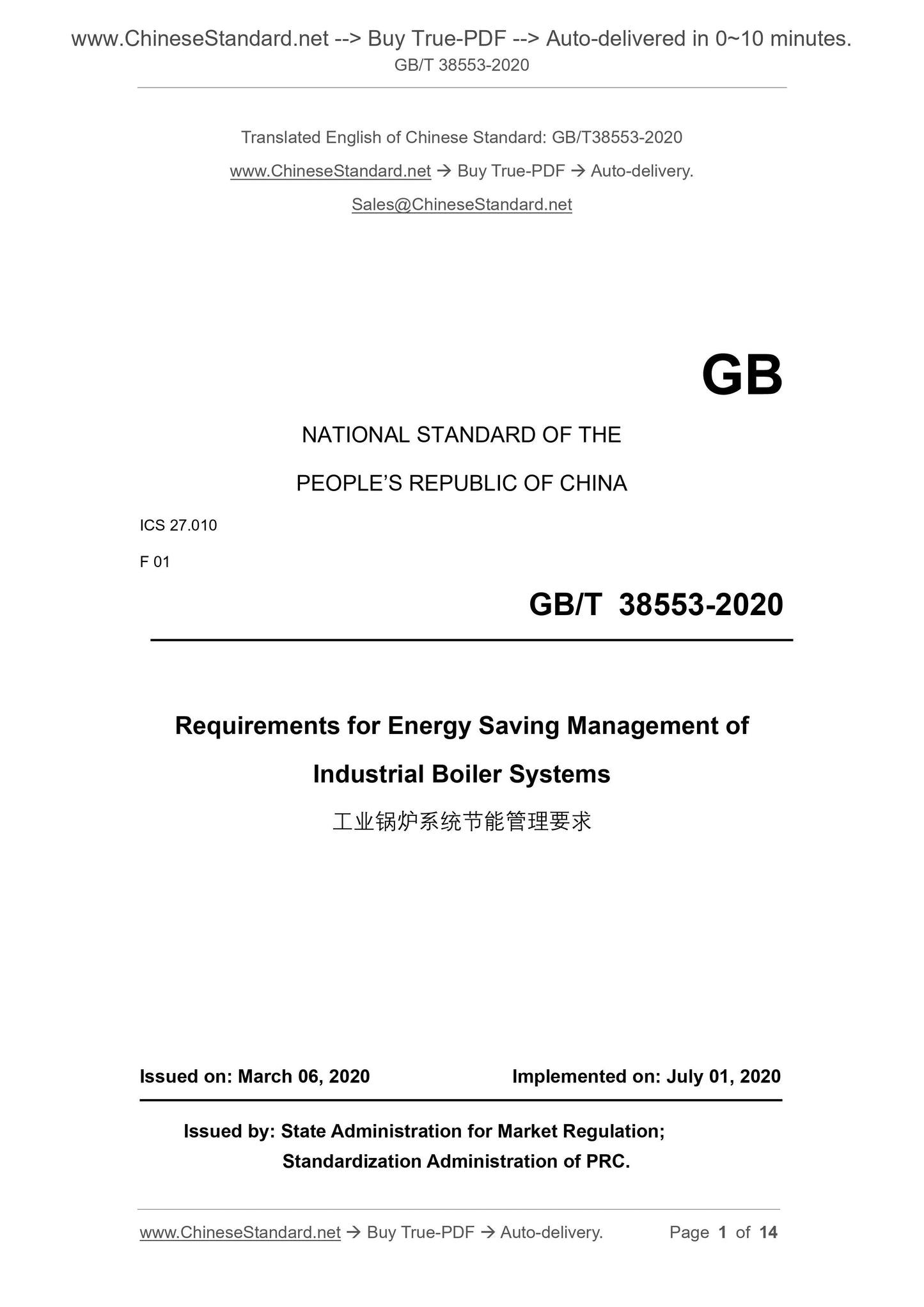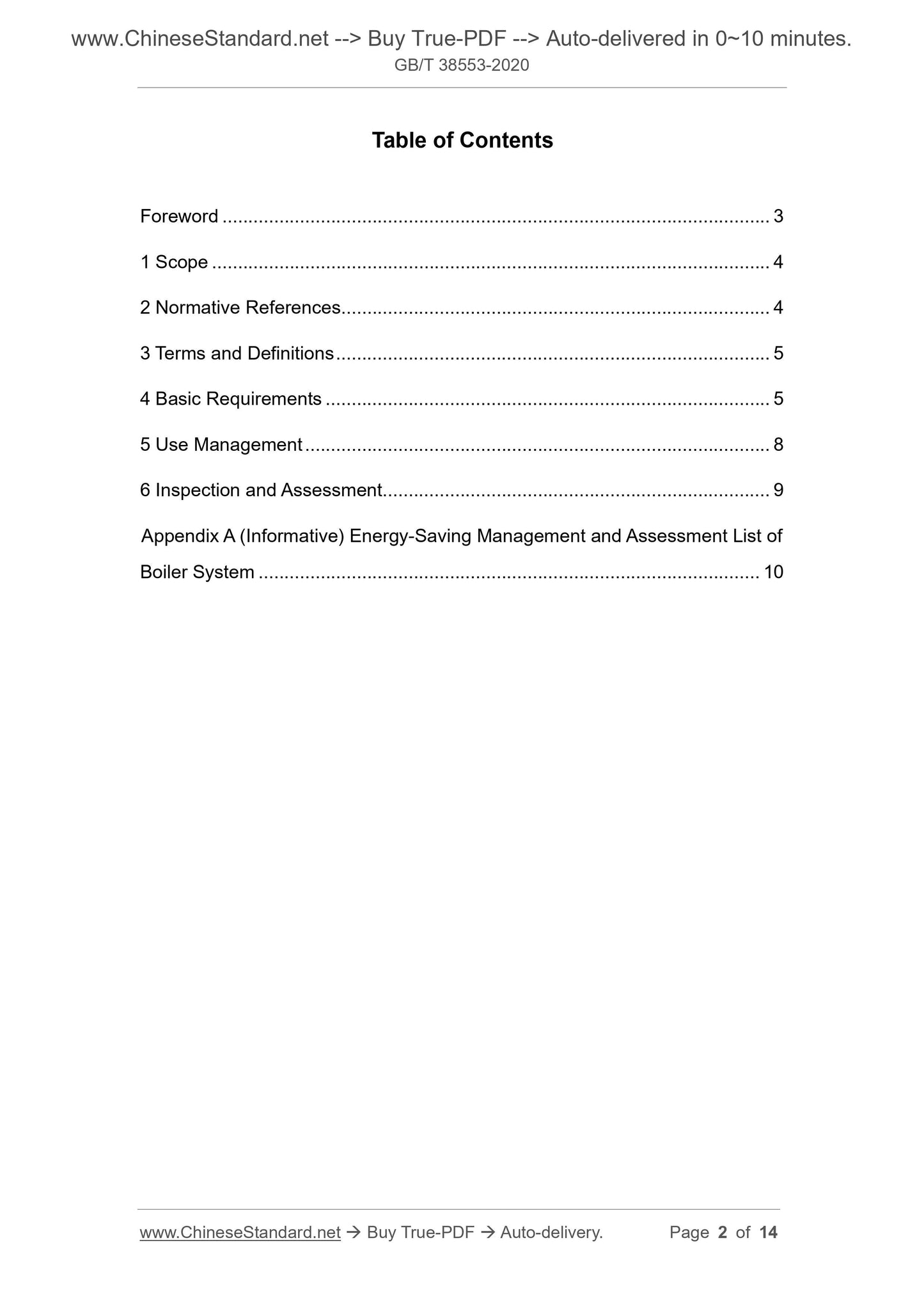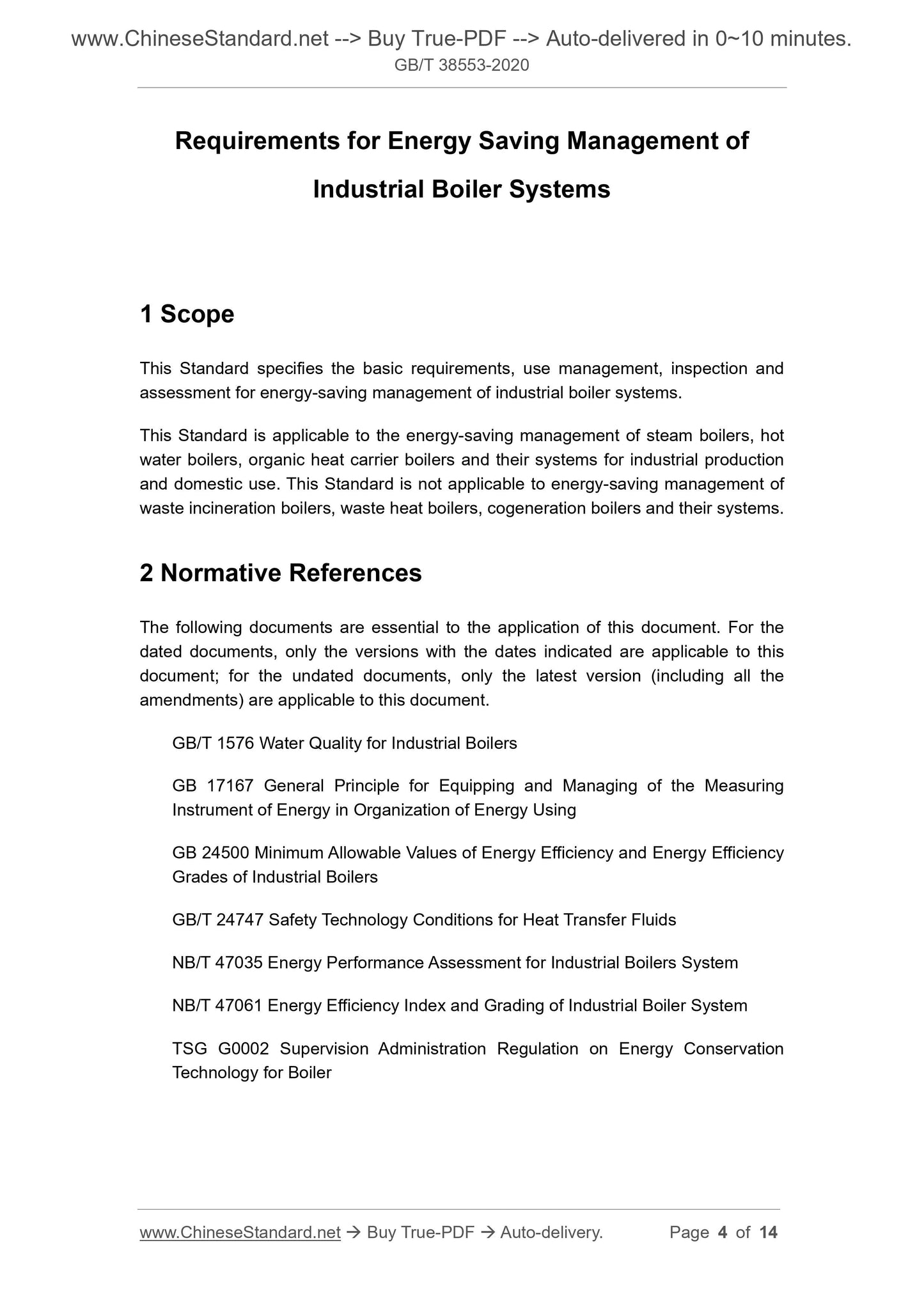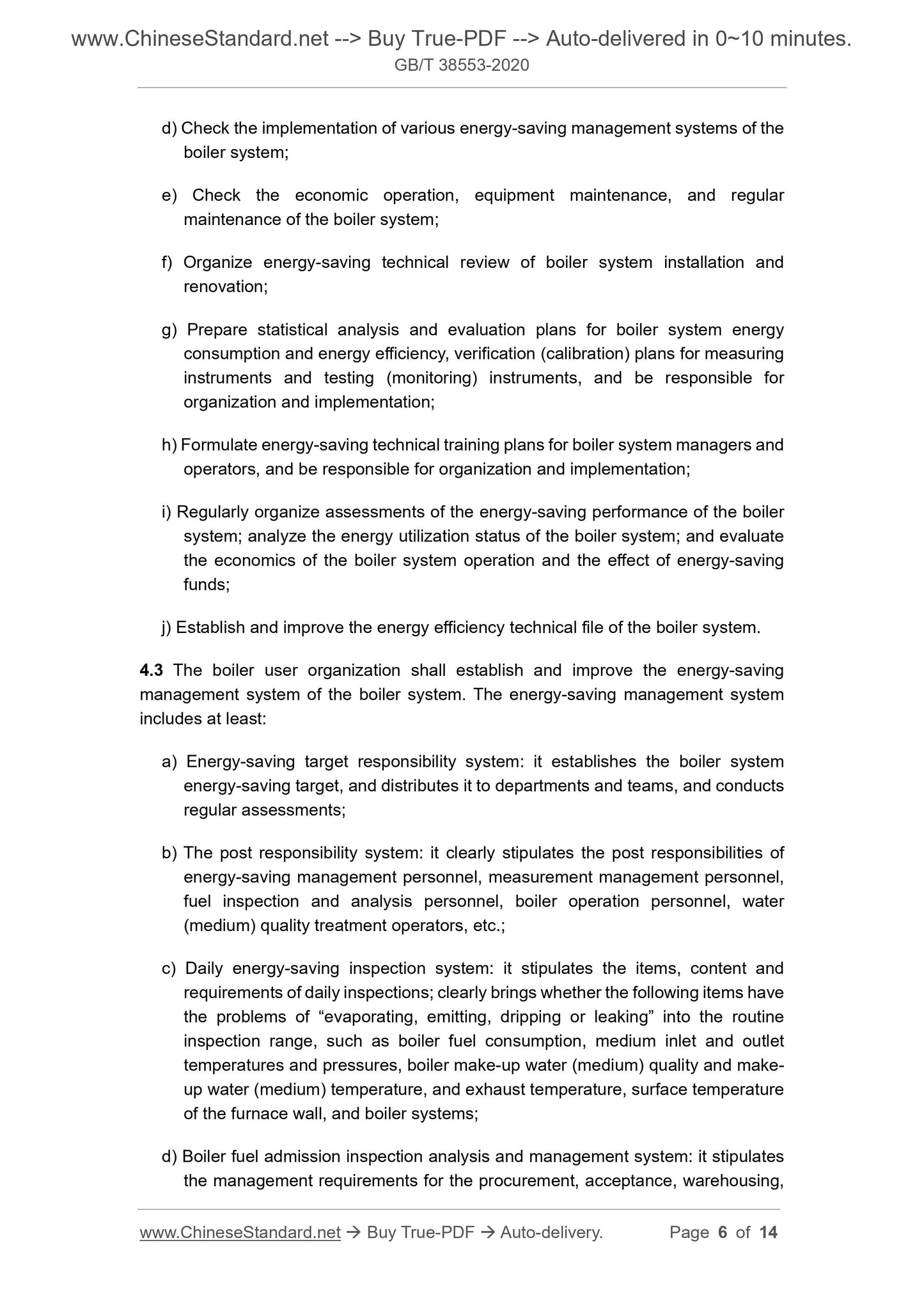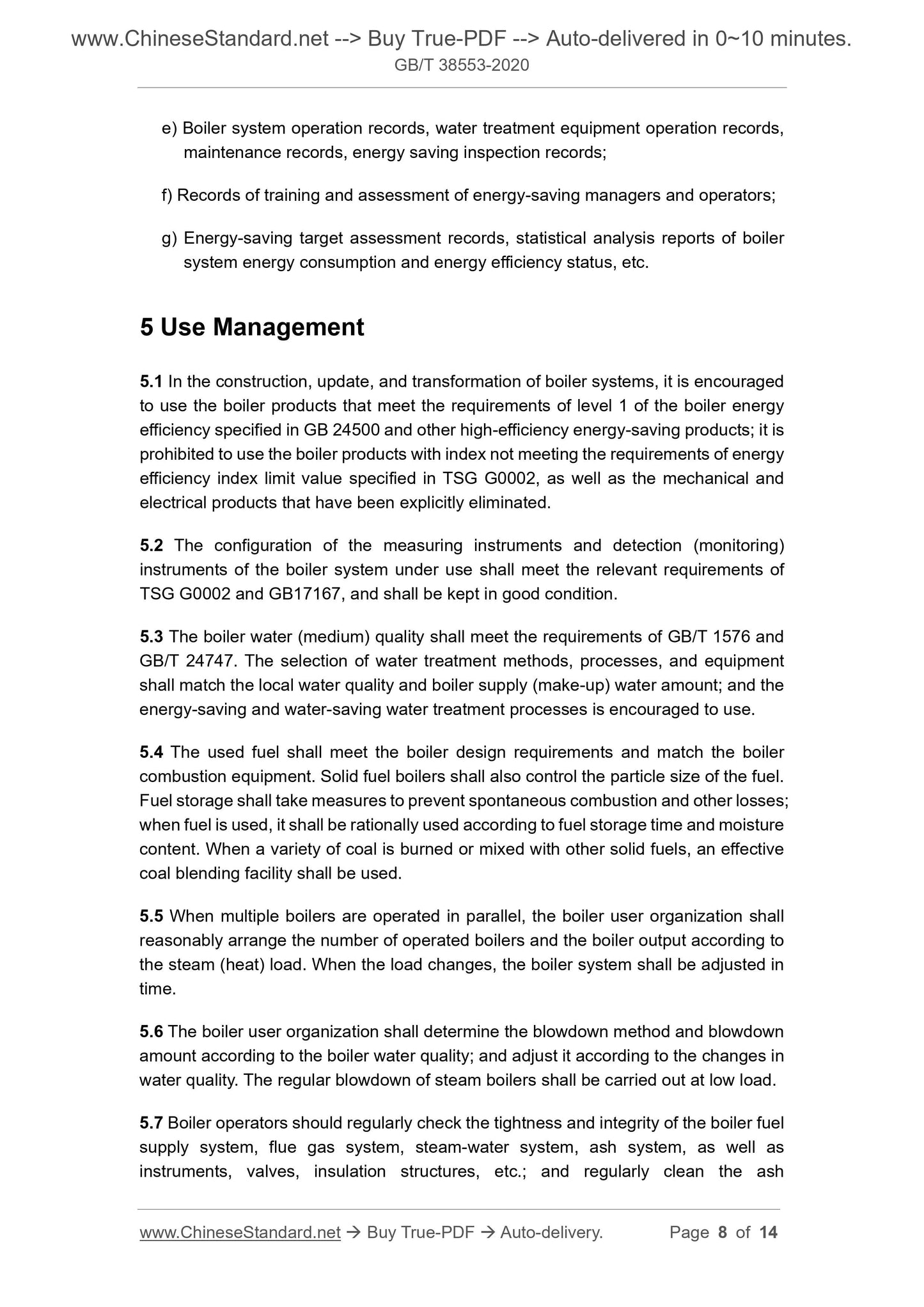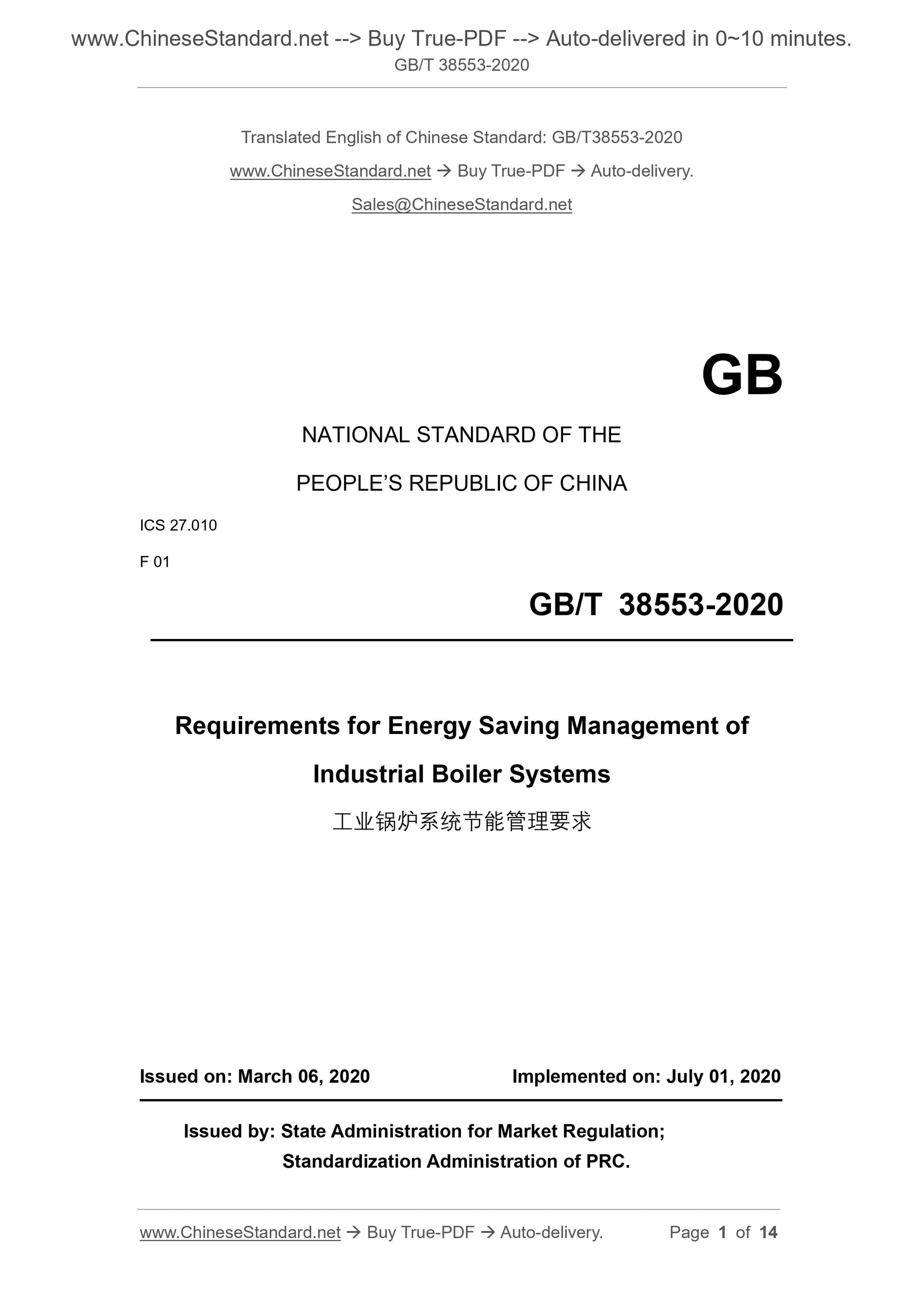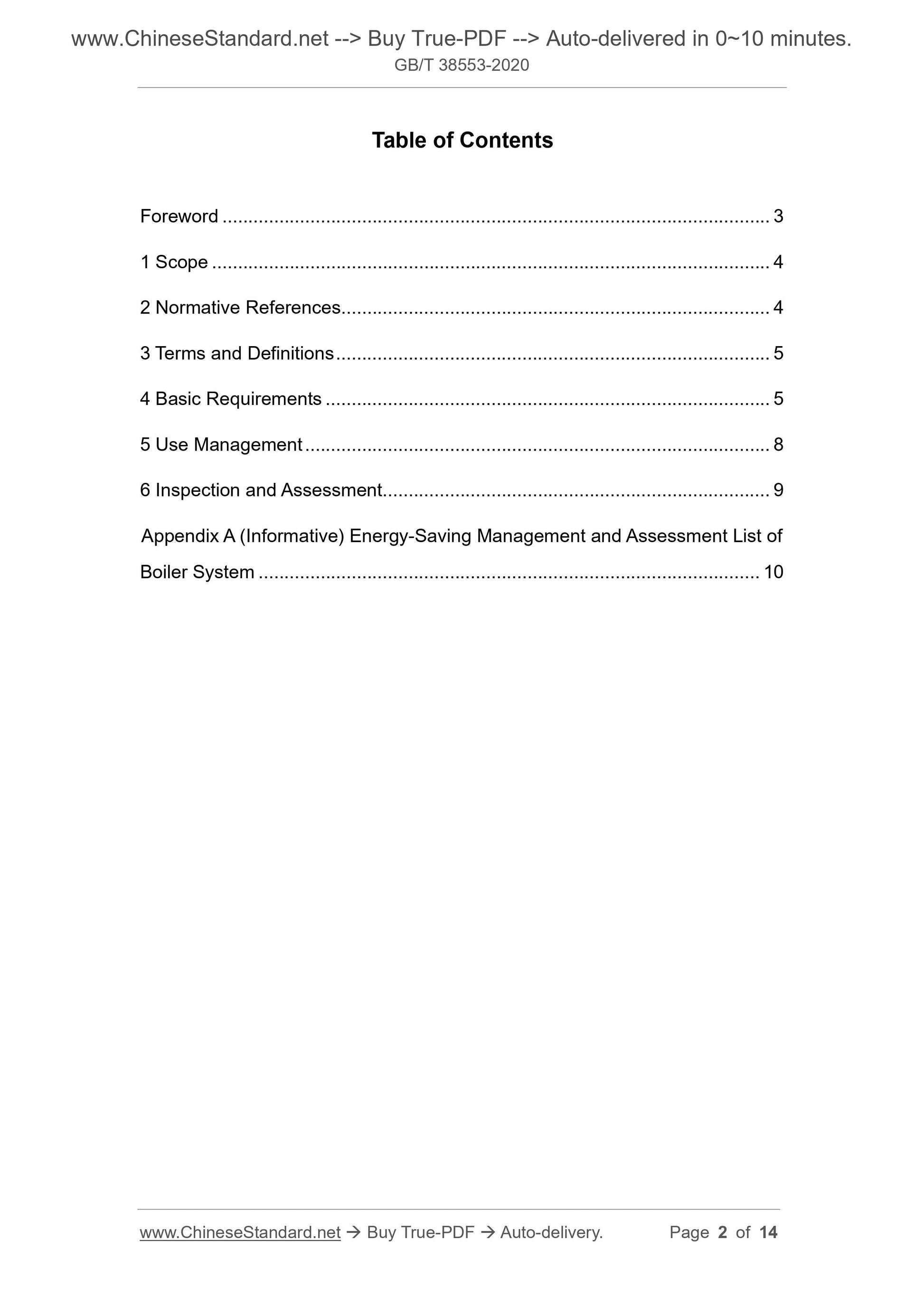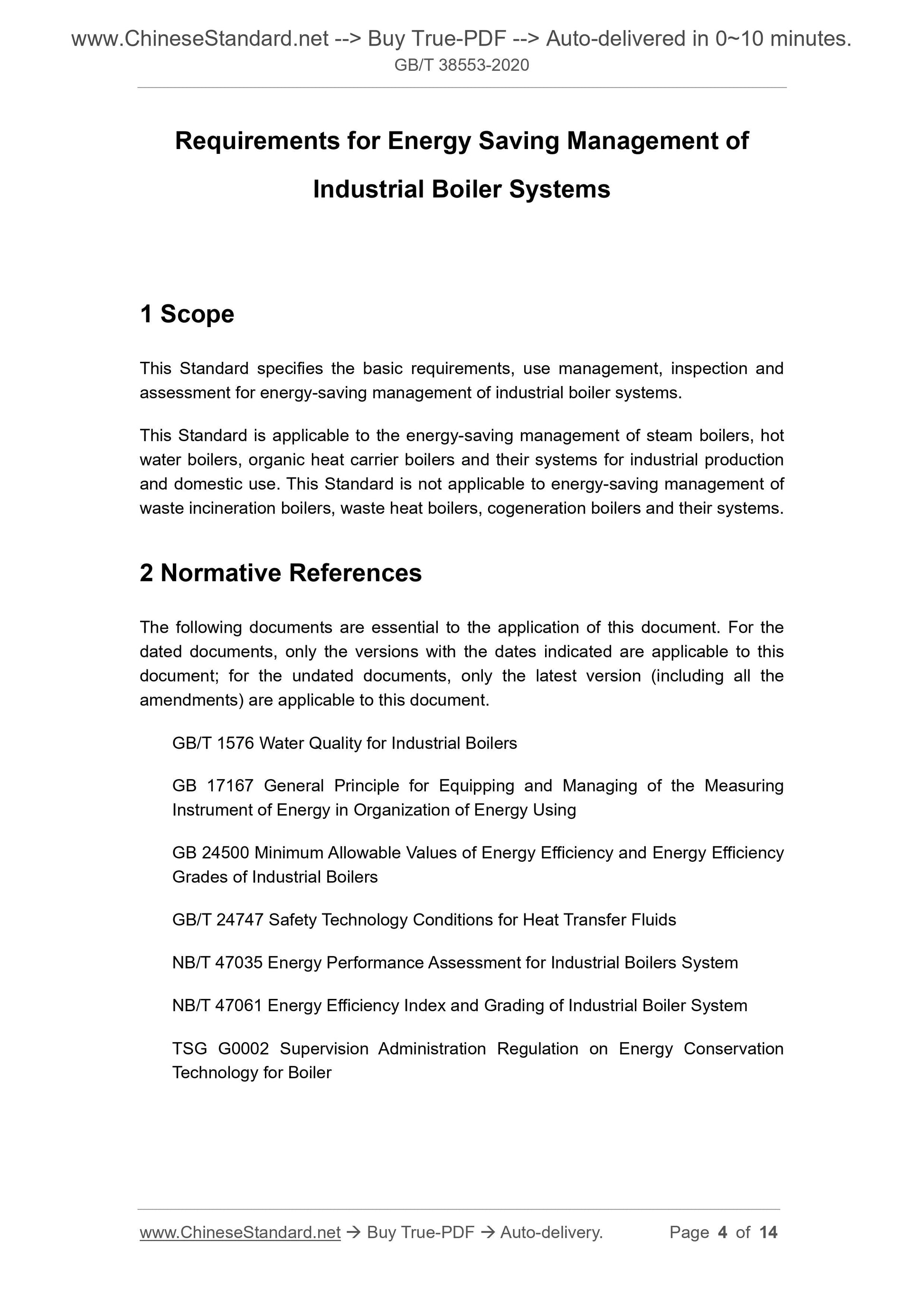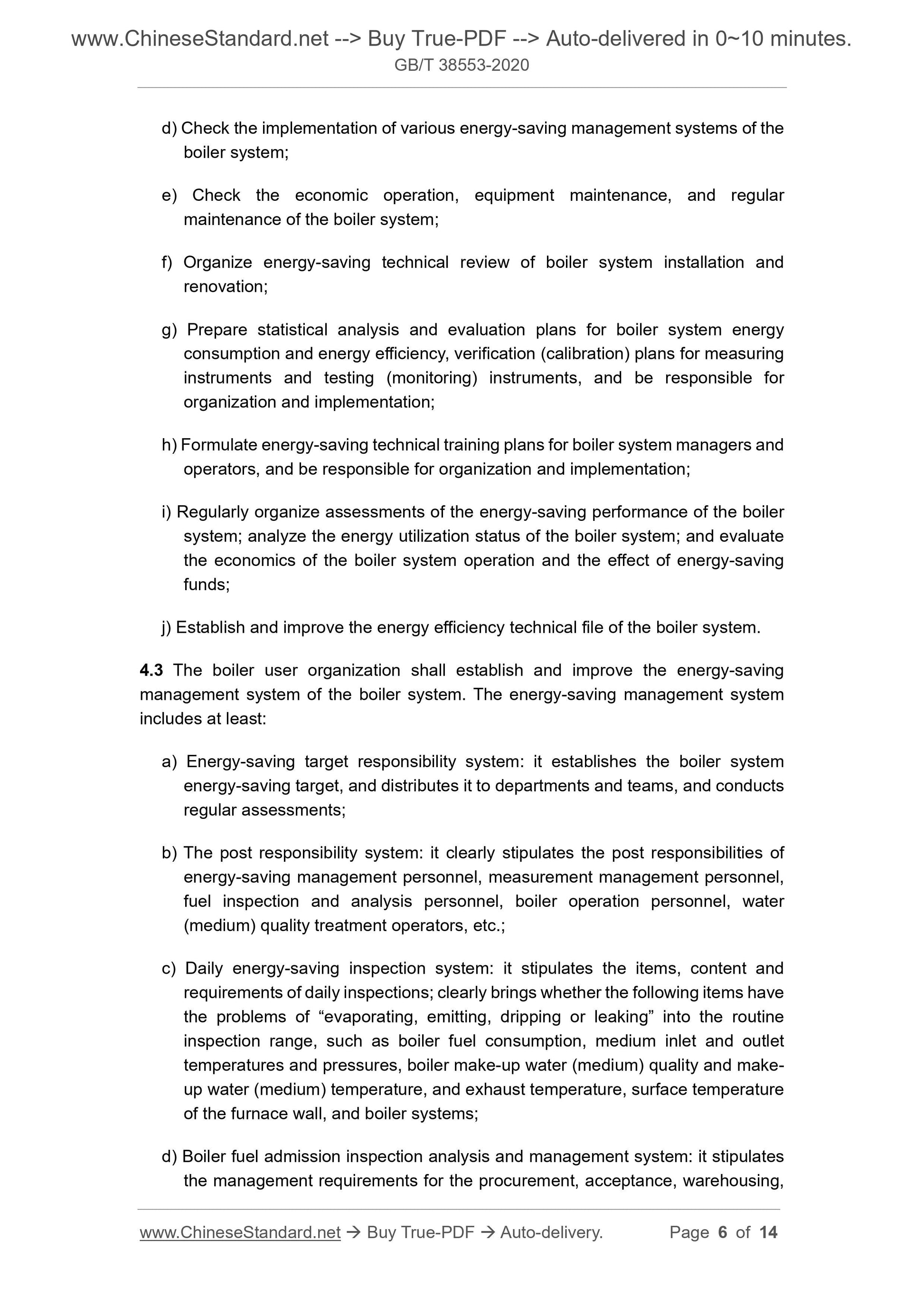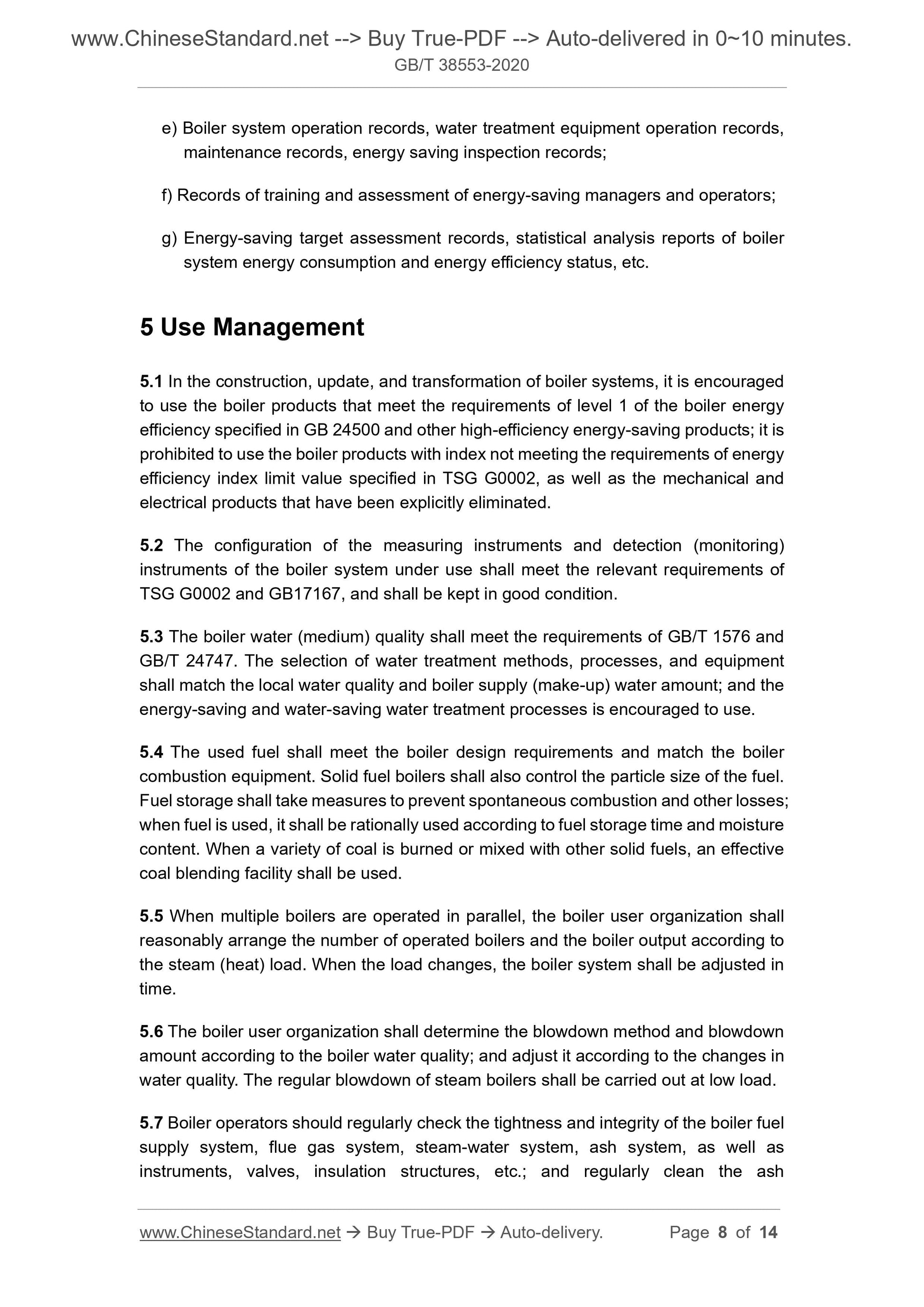1
/
of
5
www.ChineseStandard.us -- Field Test Asia Pte. Ltd.
GB/T 38553-2020 English PDF (GB/T38553-2020)
GB/T 38553-2020 English PDF (GB/T38553-2020)
Regular price
$145.00
Regular price
Sale price
$145.00
Unit price
/
per
Shipping calculated at checkout.
Couldn't load pickup availability
GB/T 38553-2020: Requirements for Energy Saving Management of Industrial Boiler Systems
Delivery: 9 seconds. Download (and Email) true-PDF + Invoice.Get Quotation: Click GB/T 38553-2020 (Self-service in 1-minute)
Newer / historical versions: GB/T 38553-2020
Preview True-PDF
Scope
This Standard specifies the basic requirements, use management, inspection andassessment for energy-saving management of industrial boiler systems.
This Standard is applicable to the energy-saving management of steam boilers, hot
water boilers, organic heat carrier boilers and their systems for industrial production
and domestic use. This Standard is not applicable to energy-saving management of
waste incineration boilers, waste heat boilers, cogeneration boilers and their systems.
Basic Data
| Standard ID | GB/T 38553-2020 (GB/T38553-2020) |
| Description (Translated English) | Requirements for Energy Saving Management of Industrial Boiler Systems |
| Sector / Industry | National Standard (Recommended) |
| Classification of Chinese Standard | F01 |
| Classification of International Standard | 27.010 |
| Word Count Estimation | 10,154 |
| Date of Issue | 2020-03-06 |
| Date of Implementation | 2020-07-01 |
| Quoted Standard | GB/T 1576; GB 17167; GB 24500; GB/T 24747; NB/T 47035; NB/T 47061; TSG G0002 |
| Issuing agency(ies) | State Administration for Market Regulation, China National Standardization Administration |
| Summary | This standard specifies the basic requirements, use management, inspection and evaluation of energy-saving management of industrial boiler systems. This standard is applicable to the energy-saving management of steam boilers, hot water boilers, organic heat carrier boilers and their systems for industrial production and domestic use. This standard does not apply to the energy-saving management of waste incineration boilers, waste heat boilers, cogeneration boilers and their systems. |
Share
